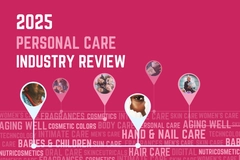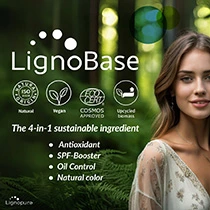Henkel partners with Shell in “first-of-its-kind” deal scaling renewable surfactants in US
19 Jan 2023 --- Henkel has signed an agreement with Shell Chemicals for a five-year collaboration to replace fossil feedstocks used in manufacturing surfactants with feedstocks based on renewable raw materials.
The renewable-based surfactants will be used in Henkel’s laundry product brands, including wide varieties of Persil, all and Purex in North America.
“Over the agreement, up to 200,000 metric tons of renewable feedstocks will be used by Shell during a combined manufacturing process (along with fossil feedstocks) to produce surfactants,” Ivo Grgic, global sourcing category lead surfactants at Henkel, tells PersonalCareInsights.
“Using the mass balance approach, an independent accounting process is applied to enable Shell to attribute the total tons of renewable feedstocks used in the process solely to Henkel. This process is certified by an independent third party.”
Grgic details that mass balance is a feedstock accounting approach to specify that a given amount of specific raw materials, such as renewable feedstocks, has been ordered, procured and used in the production of a product, such as a surfactant, according to the customer requirements without being directly measurable in the product itself.
 Signing ceremony. From left: Anne-Laure Bremond (Henkel), Kate Johnson (GM, Shell Chemicals Europe), Ivo Grgic (Henkel), Bram Verhelst (Shell Chemicals Sales Executive Europe), Reema Bari (Commercial GM, Shell Chemicals Europe), Kemal Kavasoglu (Henkel), Liz Allen (GM Shell Chemicals Business Management Northwest Europe), Sebastian Schauten (Henkel), Danielle Ebentreich (GM Shell Marketing Europe). Below: Bertrand Conqueret (Henkel), Robin Mooldijk (CEO Shell Chemicals).Replacing fossil feedstock
Signing ceremony. From left: Anne-Laure Bremond (Henkel), Kate Johnson (GM, Shell Chemicals Europe), Ivo Grgic (Henkel), Bram Verhelst (Shell Chemicals Sales Executive Europe), Reema Bari (Commercial GM, Shell Chemicals Europe), Kemal Kavasoglu (Henkel), Liz Allen (GM Shell Chemicals Business Management Northwest Europe), Sebastian Schauten (Henkel), Danielle Ebentreich (GM Shell Marketing Europe). Below: Bertrand Conqueret (Henkel), Robin Mooldijk (CEO Shell Chemicals).Replacing fossil feedstock
Shell estimates that the amount of renewable feedstocks it’ll provide Henkel has the potential to reduce greenhouse gas emissions (GHG) by up to 120,000 metric tons of carbon dioxide emissions over the length of the agreement.
“A mass balance approach is an important step to support the growth of more sustainable raw materials being used in the supply chain and support a reduction in the overall mix of fossil-based ingredients,” adds Jillaine Dellis, VP of sustainability and industry relations at Henkel Consumer Brands, North America.
“We are delighted to enhance the sustainability of our top-selling consumer brands in North America through this transition to renewable-based ingredients while offering the same outstanding cleaning performance and fabric care our consumers have come to expect from Henkel.”
Meanwhile, Grgic says the cooperation is a first step toward reaching the company’s overall goal of expanding the use of renewable-based ingredients, and the mass balance approach is “one important way to help us reach this goal.”
“Consumers care about products that reduce the impact on the environment, and through the agreement, we hope to pave the way for greater demand for renewable and circular ingredients. Over time, this partnership may help reduce the use of fossil feedstocks for the cleaning industry as demand for ingredients based on renewables increases.”
The surfactants will be produced at the Shell Energy and Chemicals Park Norco and Shell Geismar Chemicals facility in Louisiana. Shell will use independently certified sustainable feedstocks.
Curbing emissions
The Shell surfactants from renewable feedstocks replace surfactants based on fossil material such as ethane or naphtha.  The renewable-based surfactants will be used in Henkel’s laundry product brands, including Persil, all and Purex.
The renewable-based surfactants will be used in Henkel’s laundry product brands, including Persil, all and Purex.
“This agreement represents Shell’s first-of-its-kind commercial scale deal for renewable-based chemicals anywhere in the world. By working with Henkel, we are helping it take important steps toward achieving its sustainability goals,” says Robin Mooldijk, executive VP of Shell Chemicals and Products.
“Our collaboration with Henkel is a fantastic example of the opportunity for future growth. We are investing in our chemicals facilities, including on the US Gulf Coast, to scale up Shell’s sustainable chemicals capabilities and deliver the integrated and sustainable offers our customers increasingly want.”
For its European division, Henkel partnered with BASF in March last year, committing to replacing fossil carbon feedstock with renewable feedstock for most products in Henkel’s European Laundry & Home Care and Beauty Care businesses over the next four years following a successful pilot with Henkel’s cleaning and detergent brand Love Nature in 2021.
The replacement of fossil feedstock in Europe is possible through BASF’s biomass balance approach: renewable resources are used in the very first steps of chemical production. The bio-based feedstock amount is then attributed to specific products utilizing the certified method.
By Radhika Sikaria













